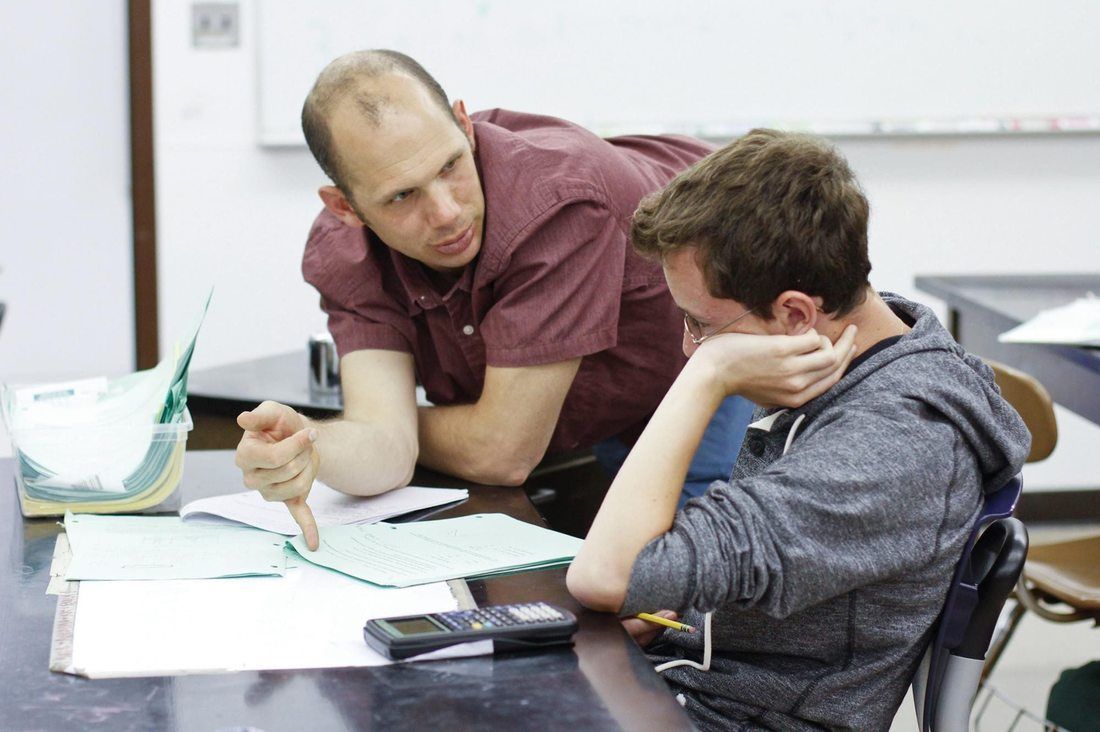|
|
|
I teach at a school with semester long classes. I love it so much. Yes, the pace can be fast, but the ability to completely reinvent yourself as a teacher every semester, rather than each year is legit.
Literally, I have grown more in the past 3 years as a teacher at my current school than I did in 15 at my previous site. There is something so powerful about embodying the energy of course creation during the winter AND during the summer. And...as you would expect. Creating new systems each semester (I tend to enjoy the painful process of rebuilding curriculum each year), involves creating a new syllabus. In preparation for creating my syllabus for my Honors Chemistry course this semester, I read this article from the Chronicle of Higher Education called "How to Create a Syllabus". The article sent me down a spiral of more articles, videos, and blogs about syllabus creation. The more I read, the MORE DEEPLY INSECURE I FELT about my own syllabus process. I have always been a total minimalist when it comes to creating syllabus. Or am I just too lazy to build an complete one? Either way, here is my Honors Chemistry syllabus for the current semester. Description...Topics...Grades...done and done. I have always prided myself on getting that info on one page! Something simple about the basics...or lazy? Anyhow, it has always felt good. Then I read the above article. I mean...man. Am I really supposed to include all of that stuff? I guess so. So the reflection and self critique began. Enter The Imposter... In other, less self deprecating news, the syllabus research hole I was falling into quickly forced reflection on something deeper, and more meta that simply the content of the syllabus: what the syllabus communicates beyond words. The culture that it embodies. For me, clarity, simplicity, and my grad school days of obsessing over limiting the extraneous cognitive load of written materials for students, all contribute to my syllabus structure. I am not lazy. I value brevity, and yes...I have found myself in tricky situations with parents, students, and even counselors over my lack of behavior policy, etc., on my syllabi. Then I stumbled upon this copy of a syllabus from a Literature course taught by one of my academic heroes, the late David Foster Wallace. A genius by every account, the above syllabus might be one of the best pieces of writing I have ever seen. On first glance, it couldn't look more different than mine. Not one, but five pages long, Wallace accounts his pedagogical structure and course expectations in excruciating detail. Despite the length...when you look closer, Wallace's candor, and honest comments do not create larger sense of structure and clarity around expectations, but rather, paint a picture of the teacher you will and the course. Serve as a metaphor for what you will experience, rather than how that experience will be measured or quantified. Highlights from my reading of Wallace's syllabus include the following excerpts: "The final'll be essay questions, probably." "No question about literature is stupid." "Don let any potential light weightish-looking qualities of the text delude you into thinking that this will be a blow-off-type class." "Don't quote like 40 lines a time." I encourage you to read the whole thing. Read it again. Then read it a third time. It's beautiful, and at its core, reminds me that teaching is indeed, art. Creation. My entire class is based on streamlining systems for students, to maximize content acquisition in the context of inquiry. To leave space for thinking in simple, open, structured ways. My syllabus embodies this. Wallace does the same. He does not leave you with just course rules and expectations. Wallace, reserves the right to change those when he says: "Instructor reserves right to make changes and additions." Wallace uses simple language to tell a complex story about his pedagogy...not about his rules and regulations. I don't say anything in my syllabus. Wallace says everything. . Both tell a story. Yes, in the end, my syllabus is too short. By reflecting on WHY it always is, and why I can't get myself to follow what the "rules" require, has been a deeply powerful exercise in reflective practice. The casual nature of Wallace's voice, combined with a dry sense of humor and insight reflect who he is as an author and I'm sure, and educator. I want to learn to take more risks with my syllabus writing. I want to say the right things, the right way, and leave the right things out. Wallace reminds us that writing...great writing....is about withholding information, and building connections. In that order. "Great writers, comedians, and magicians share a lot in common. Both depend on a certain quantity of vital information withheld, but evoked in such a way as to cause an explosion of associated connections within the recipient" Comments are closed.
|
Categories
All
Archives
March 2024
|

 RSS Feed
RSS Feed